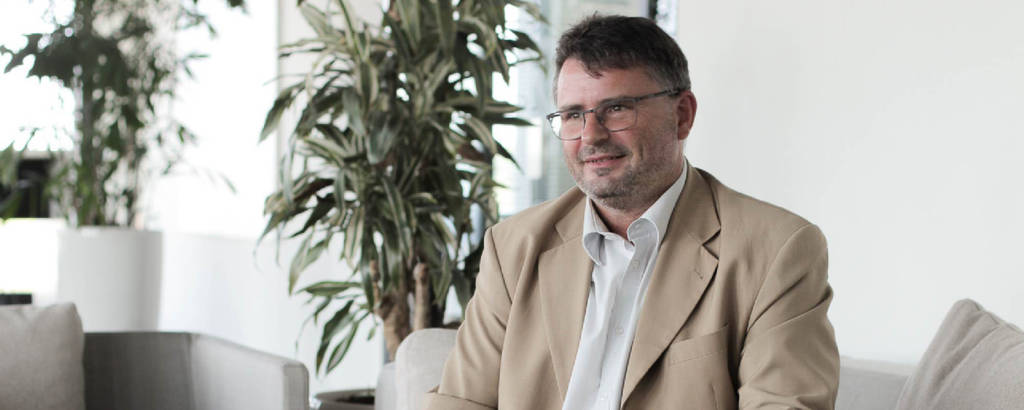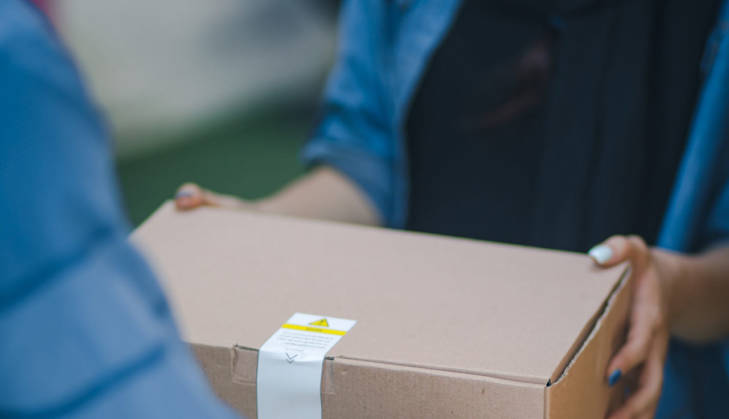Antonia Stalder and Thomas Wälchli on Swiss Post’s role in the circular economy


What does Swiss Post mean by circular economy in general?
Antonia Stalder: Today’s economy works largely in a linear fashion: we extract raw materials, make products from them, use them and then dispose of them. Waste is produced. But raw materials are becoming scarcer all over the world. And the linear model is increasingly problematic. The solution to this problem lies in the circular economy. Here, the energy and material cycles are closed.
What cycles are we talking about in concrete terms?
Antonia Stalder: It’s about using the products again and again because they are built in such a way that they can be easily repaired or refreshed. They are also used more intensively, for example by sharing or reselling.
And what role does recycling play?
Antonia Stalder: Recycling is, in a way, the last option in the circular economy. Only when the life of a product is really exhausted is it dismantled, its components and raw materials returned to production and new products are created from it.
What role can the Post play in the circular economy?
Antonia Stalder: An important one. To close the loops, products and components have to be moved. From the user to the repairer or back to the recycler at the end of their life. As a logistics company, Swiss Post is the first point of contact here. It delivers to around 3.8 million households in Switzerland every day and has the option of picking up something on the way back. So Swiss Post not only brings it, it also collects it. This is how we can function as a hub in the circular economy.
So Swiss Post makes an important contribution to the circular economy as a logistics company?
Thomas Wälchli: Yes, as a logistics company we can help close cycles by offering our services at competitive prices. The crucial question here is how the materials get from the end consumers back to the point of reuse. This is where our vehicles, which are empty after delivery, can be used. We can collect goods or even packaging and bring it back.
In addition, are there other ways in which the Post can promote the circular economy?
Antonia Stalder: Yes, there are. For example, products that someone wants to share or pass on can be handed in at access points such as My Post 24, at a branch or at a branch with a partner. And when new business models are developed, Swiss Post can help manage the necessary data and financial flows. For example, in the “rent instead of own” model.
Thomas Wälchli: The transport solutions themselves also play an important role. These include, of course, the vehicles that Swiss Post is increasingly using with alternative drives. But packaging is also important. Reusable packaging has been an issue at Swiss Post for years. We already offer complete solutions for pharmaceutical companies with the Dispobox and the ThermoCare Box. And we will expand this area in the foreseeable future and already have corresponding pilot tests underway.
So Swiss Post can actively promote the circular economy in Switzerland?
Antonia Stalder: A resounding yes. Not only can it do it, but it wants to do it. On the one hand, its contribution lies in the logistical business models for recycling products or for moving individual components. And it contributes to the digital linking of the different stages of product use. In other words, the networking of the manufacturer, the user, the repairer or the recycler. We also want to assume our social, ecological and economic responsibility by developing circular economy offers with our customers and partners. We see enormous potential in this.
Are there already concrete projects and partnerships?
Thomas Wälchli: Especially in the area of recycling and repair, there are very specific solutions that we have developed together with partners. Used coffee capsules are collected for recycling for Nespresso, and old or defective routers are collected for repair for Swisscom and UPC. Empty PET bottles are collected. The projects are becoming more diverse and include more than recycling. We also work not only with individual business customers, but increasingly with total markets.
How do you see the future of the circular economy at Swiss Post?
Thomas Wälchli: Swiss Post will integrate corresponding services into its value chain. The examples of Nespresso or Swisscom show that successful circular economy is a joint project. We want to become even more active here, share our experience to date and help close more loops.
How can Swiss Post customers help here?
Antonia Stalder: Everyone can make a contribution. As a consumer, I have a lot of influence. I have to ask myself: Do I really need it or could I borrow it? Do I need it new or is second-hand enough? Do I want the cheapest product or would I rather have a durable one that can also be repaired? If consumer behaviour shifts in the direction of circular economy products, suppliers will feel this. They will make an effort to adapt their offerings. From product design to shipping to the underlying business model. And this is where Swiss Post comes in. We help manage and move products and raw materials so that they can be used again and again and kept in use for as long as possible.
Is waste-free postal logistics possible in the future?
Thomas Wälchli: Avec les conditions cadres d’aujourd’hui, je dois donner une réponse négative claire. Cependant, on assiste actuellement à une évolution très dynamique des technologies matérielles, du contrôle numérique des flux de marchandises et du cadre juridique. L’économie circulaire est également un terrain de jeu pour de nombreuses start-ups aux idées et innovations passionnantes. Nous suivons cette évolution avec beaucoup d’intérêt.
Does the Post already have concrete plans here?
Thomas Wälchli: Yes. What we are already seeing today: A strong upswing in reusable packaging is expected in the next few years. Swiss Post is developing a new reverse concept for this. The goal is to return these containers as quickly as possible from the recipient customer to a central location and thus save a massive amount of cardboard in a first step.



